Introduction: The Machine has no fear 3 1 / The Positive Affects of Alan Turing 32 2 / Shaming AI: helplessness, Confusion, and error 58 3 / Artificial Psychotherapy 83 4 / Walter Pitts and the Inhibition of Affect 109
Prefac e
What would critique do if it could be associated with more , not with less ,
with multiplication , not subtraction .... This would require that all entities,
including computers, cease to be objects defined simply by their inputs and
outputs and become again things, mediating, assembling, gathering.
Bruno Latour
 f a sIngle book could mark a shIft In the mood of a research field, Antonio Damasios 1994 bestseller Descartes Error was just such a book. Using neurological data, Damasio argued that high-level cognitive capacities were more entwined with emotion than many had previously assumed. He disputed the notion that the faculties of reason and emotion are radically opposed, claiming instead that good reasoning is reliant on the capacity to experience and regulate feelings: Emotions and feelings may not be intrud ers in the bastion of reason at all: they may be enmeshed in its networks, for worse and for better (xii). It has been a commonplace thought-experiment that if one could be released from emotional reactivitythrough moral rigor or philosophical clarity or scientific acumenones reason would find its purest, most potent form. Damasios neurological data suggested just the opposite: without feelings (and their bodily accoutrement), cognitive capaci ties were surprisingly blunt and inept. To put this colloquially, one could not be cognitively smart without also being emotionally capable.
f a sIngle book could mark a shIft In the mood of a research field, Antonio Damasios 1994 bestseller Descartes Error was just such a book. Using neurological data, Damasio argued that high-level cognitive capacities were more entwined with emotion than many had previously assumed. He disputed the notion that the faculties of reason and emotion are radically opposed, claiming instead that good reasoning is reliant on the capacity to experience and regulate feelings: Emotions and feelings may not be intrud ers in the bastion of reason at all: they may be enmeshed in its networks, for worse and for better (xii). It has been a commonplace thought-experiment that if one could be released from emotional reactivitythrough moral rigor or philosophical clarity or scientific acumenones reason would find its purest, most potent form. Damasios neurological data suggested just the opposite: without feelings (and their bodily accoutrement), cognitive capaci ties were surprisingly blunt and inept. To put this colloquially, one could not be cognitively smart without also being emotionally capable.
Scientific regard for affectivity grew significantly in the 1990s. What had once been the preserve of subspecialties in psychology was now a topic of curiosity across many disciplines. Neuroscientists were keenly interested. Popular science writers soon followed. There was also considerable interest in affectivity from the scientific domain perhaps least likely to be associ ated with the warmth and corporeality of emotion: the computational sciences. A decade earlier, Howard Gardner had claimed in The Minds New Science , his authoritative history of the cognitive sciences, that though mainstream cognitive scientists do not necessarily bear any animus against the affective realm... in practice they attempt to factor out these elements to the maximum extent possible (41). At the time (1985), this claim seemed uncontentious. It was widely agreed that the computational sciences (artifi cial intelligence, robotics, cognitive science) were primarily concerned with cognitive capacities and systems of high-level expertise. IBMs chess-playing computer, Deep Blue, became one celebrated example of such exact, affect-less intelligence. By the mid-1990s, however, something was changing. Arti ficial intelligence (AI) researchers were getting interested in how affective constraints could be factored into artificial systems. Mirroring Damasios neurological findings, they showed that programming affective states into artificial agents makes them more resilient, better able to respond in real time, and more engaged with the vicissitudes of human use. At the end of the twentieth century, the pioneering computational question was no longer Can machines think ? but Can they feel ?
In this book I delve into the prehistory of this recent interest in artifi cial emotion. Affect and Artificial Intelligence explores the relationship between artificiality and affectivity in the early, heady years of computationwhen the first calculating machines were imagined and built and when the con ceptual parameters of electronic calculation were first being fashioned. The framing hypothesis for this project is that the curious new alliances emerg ing in the computational sciencescognition and affect; mind and embodi ment and world; high-level expertise and infantile stateshave their roots in earlier practices, earlier conceptual commitments, and earlier assemblies of persons and place. An examination of these early materials shows that the attenuation, amplification, and management of the affects have been a significant force in AI and cybernetic research from the beginning.
However, Affect and Artificial Intelligence is not a historical account in the usual sense. Rather, it offers a number of interrelated case histories of people and projects that became concerned, for worse and for better, with how net works of affect and computation might be coassembled. I take as axiomatic Andy Clarks claim that we are creatures tailor-made for multiple mergers and coalitions (2003, 7), and I focus on humans, machines, affects, psyches,



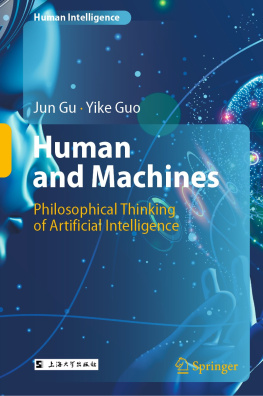
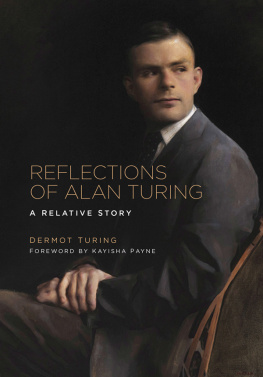
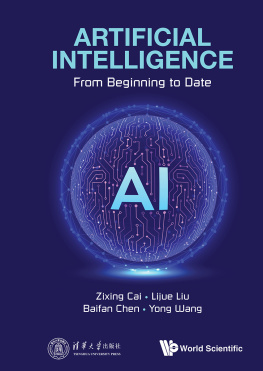
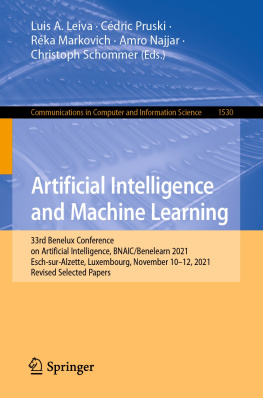
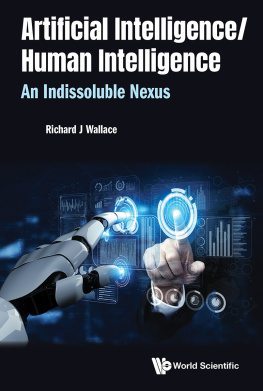
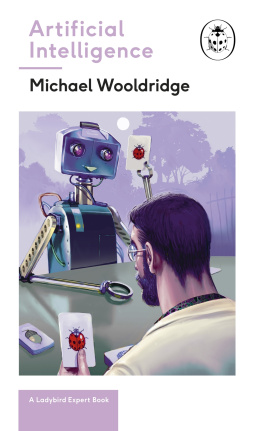
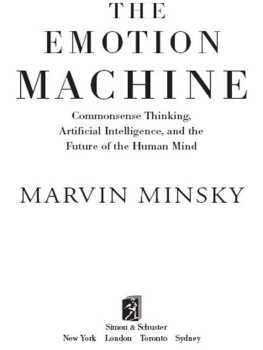
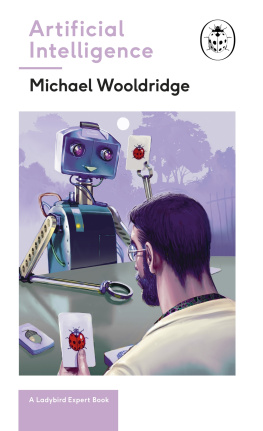
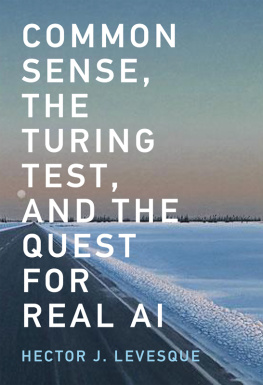
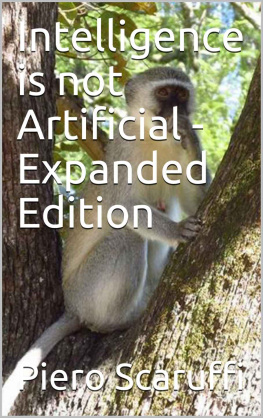
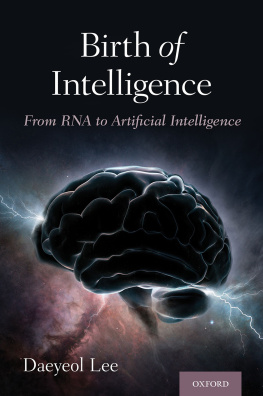
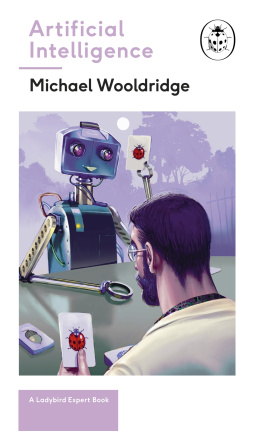
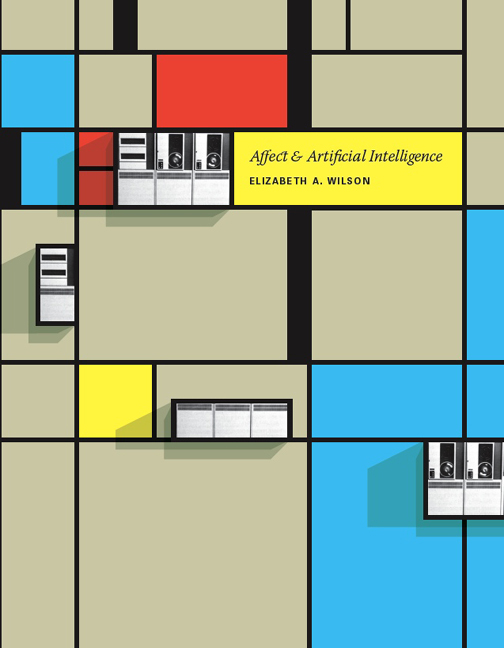
 f a sIngle book could mark a shIft In the mood of a research field, Antonio Damasios 1994 bestseller Descartes Error was just such a book. Using neurological data, Damasio argued that high-level cognitive capacities were more entwined with emotion than many had previously assumed. He disputed the notion that the faculties of reason and emotion are radically opposed, claiming instead that good reasoning is reliant on the capacity to experience and regulate feelings: Emotions and feelings may not be intrud ers in the bastion of reason at all: they may be enmeshed in its networks, for worse and for better (xii). It has been a commonplace thought-experiment that if one could be released from emotional reactivitythrough moral rigor or philosophical clarity or scientific acumenones reason would find its purest, most potent form. Damasios neurological data suggested just the opposite: without feelings (and their bodily accoutrement), cognitive capaci ties were surprisingly blunt and inept. To put this colloquially, one could not be cognitively smart without also being emotionally capable.
f a sIngle book could mark a shIft In the mood of a research field, Antonio Damasios 1994 bestseller Descartes Error was just such a book. Using neurological data, Damasio argued that high-level cognitive capacities were more entwined with emotion than many had previously assumed. He disputed the notion that the faculties of reason and emotion are radically opposed, claiming instead that good reasoning is reliant on the capacity to experience and regulate feelings: Emotions and feelings may not be intrud ers in the bastion of reason at all: they may be enmeshed in its networks, for worse and for better (xii). It has been a commonplace thought-experiment that if one could be released from emotional reactivitythrough moral rigor or philosophical clarity or scientific acumenones reason would find its purest, most potent form. Damasios neurological data suggested just the opposite: without feelings (and their bodily accoutrement), cognitive capaci ties were surprisingly blunt and inept. To put this colloquially, one could not be cognitively smart without also being emotionally capable.